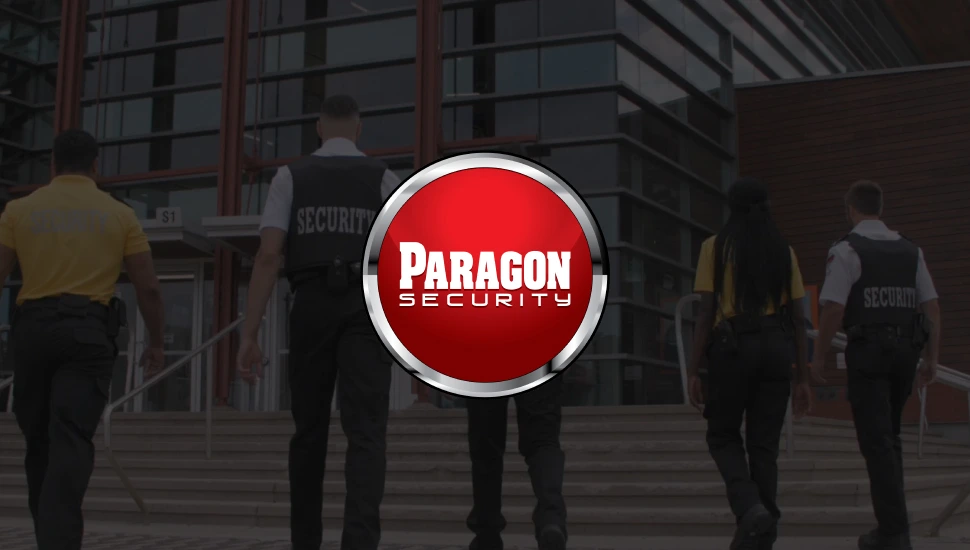Are you considering a career in security? Whether you’re an aspiring security guard or looking to become a seasoned security professional, there are several key factors to consider before entering this field. In this article, we will explore six essential areas that can help guide your decision-making process and set you on the path toward a successful and fulfilling security career. From employment rates to education requirements and diverse roles, we’ve got you covered!
1. Employment Rate in Security
When considering a career in security, one crucial aspect to evaluate is the employment rate within the industry. Fortunately, the demand for security professionals has been steadily increasing over the years. With crime rates on the rise and organizations prioritizing safety and protection, there are ample job opportunities available.
Security positions can be found across various sectors, such as government agencies, corporate entities, retail establishments, healthcare facilities, and educational institutions. This wide range of industries ensures diverse options for individuals looking to enter the field.
Moreover, technological advancements have also led to an increased need for cybersecurity experts. As businesses become more reliant on digital systems and data protection becomes paramount, roles specializing in information security have become highly sought after.
The flexibility in employment options is another appealing factor in pursuing a career in security. Whether you prefer working as a full-time employee or seeking part-time or contract-based positions, opportunities are available to suit different preferences and lifestyles.
It’s worth noting that while entry-level positions may not always offer high salaries initially, with experience and advanced certifications under your belt, you can expect significant growth potential both in terms of responsibilities and remuneration.
If you’re seeking job stability and challenging work that involves protecting people and assets from potential threats – a career in security might just be what you’ve been looking for! But before making any decisions, we must explore other crucial factors like education requirements and transferrable skills, which we’ll delve into.
2. Building a Career Around Your Lifestyle

When choosing a career path, it’s essential to find one that aligns with your lifestyle. This is especially true in the security industry, where demands and schedules vary greatly depending on your chosen role. Building a career around your lifestyle not only ensures job satisfaction but also helps maintain a healthy work-life balance.
One of the first things to consider when building a security career around your lifestyle is flexibility. Many roles within the security field offer flexible schedules, making it easier to accommodate personal commitments or pursue other interests outside of work. Whether you’re looking for part-time or full-time employment, there are options available that can fit into your desired schedule.
Another aspect to consider is location. Some security positions may require travel or working in specific environments such as corporate offices, events venues, or residential complexes. By assessing what type of setting suits you best and aligning job opportunities accordingly, you can build a career that allows you to thrive while enjoying your preferred surroundings.
Additionally, consider the physical demands of different roles within the security industry. While some positions may involve more active duties like patrolling or responding to incidents on-site, others might be more focused on monitoring systems and ensuring safety from control rooms. Understanding how much physical activity you prefer and what level of engagement suits your personality will help guide your choices when entering this field.
Furthermore, please don’t overlook the potential for growth within the industry itself when considering building a career around your lifestyle. The security sector offers various opportunities for advancement through specialized training programs or certifications. With each step forward in your professional development journey comes increased responsibility and potentially higher earnings – factors that should be considered when planning for long-term stability and success.
3. Education Required

Having the proper education is crucial when entering into a career in security. Obtaining your security guard license as a first step will be beneficial in supporting your long-term career in Security.
Another option is to pursue a degree in criminal justice or a related field. This program can provide you with a solid foundation of knowledge and skills directly applicable to the security industry. Courses may cover law enforcement procedures, crime prevention strategies, and emergency response protocols.
Also, the route is obtaining certifications or specialized training in specific security areas. These programs often focus on developing practical skills and expertise in surveillance techniques, risk assessment, or cybersecurity.
In addition to formal education, it’s essential to stay updated on the latest trends and developments in the field of security. This can be done through attending workshops, conferences, or participating in online courses.
Remember that while education is essential, real-world experience also plays a significant role in shaping your capabilities as a security professional. So, don’t underestimate the value of hands-on training and practical experience gained through internships or entry-level positions.
Finding the right balance between academic qualifications and practical experience will significantly enhance your prospects for success in the dynamic security field.
4. Transferrable Skills

When entering into the field of security, it’s essential to consider the transferrable skills that you can bring to the table. These are skills you have acquired through previous experiences or education and can be applied to a career in security.
One critical transferrable skill is communication. As a security professional, you will need to effectively communicate with clients, colleagues, and members of the public daily. Strong verbal and written communication skills are essential to convey information clearly and concisely.
Another valuable skill is attention to detail. In security, even the most minor details can make a big difference. Whether conducting thorough inspections or carefully observing surveillance footage, having an eye for detail is crucial in maintaining safety and preventing incidents.
Problem-solving is yet another crucial transferrable skill in this industry. Security professionals often encounter challenging situations that require quick thinking and decisive action. Being able to analyze problems, think critically, and come up with practical solutions is vital for success in this field.
Furthermore, adaptability is highly valued in the security profession. The nature of security work means that no two days are ever the same; situations can change rapidly and unexpectedly. Being flexible and adaptable allows you to handle unforeseen circumstances professionally while still ensuring the safety of others.
Leadership skills can greatly benefit your career as a security professional. Whether you’re managing a team or taking charge during emergencies, being able to lead confidently inspires trust among both your colleagues and those under your protection.
When considering a career in security, it’s essential not only to possess technical knowledge but also to recognize the value of transferrable skills, so take stock of your transferrable skills and embark on a rewarding career in security today.
5. Diversity in Roles
When it comes to a career in security, there is an incredible diversity of roles available. Gone are the days when being a security professional meant working as a security guard. While guarding remains an important aspect of the industry, there are now countless other opportunities to explore.
One option is becoming a cybersecurity analyst, protecting networks and systems from digital threats. This role requires technical skills and knowledge of computer systems and programming languages. Another possibility is working as a private investigator, using your investigative skills to gather client information.
For those with strong communication skills, a career in security management may be ideal. As a security manager, you would oversee operations and ensure all protocols are followed effectively. Alternatively, you could pursue a position as an event or executive protection specialist, providing safety and security for high-profile individuals or during special events.
The beauty of the diverse range of roles within the security industry is that it allows individuals with different skill sets and interests to find their niche. Whether you have expertise in technology, physical fitness, problem-solving or interpersonal relations – there’s likely a role that suits you perfectly.
With so many options available within security careers today, it’s essential to carefully consider which path aligns best with your strengths and interests. By doing so, not only will you increase your chances of job satisfaction but also open yourself up to greater opportunities for growth and advancement down the line.
Remember: diversity in roles means more than job titles – it represents unique challenges and experiences that can make your journey through the security world fulfilling and exciting!
6. Career Advancement Opportunities
When considering a career in security, it’s good to think about the potential for advancement. Security is a field that offers numerous opportunities for growth and development. Whether you start as a security guard or enter into a specialized role, there are many paths you can take to advance your career.
One way to advance in the security industry is by acquiring additional certifications and training. These credentials can help you stand out from other candidates and demonstrate your expertise in specific security areas. Some standard certifications include Certified Protection Professional (CPP), Certified Information Systems Security Professional (CISSP), and Physical Security Professional (PSP).
Another avenue for career advancement is through gaining experience in different roles within the security field. By diversifying your skill set and taking on new responsibilities, you can broaden your knowledge base and increase your chances of moving up the ladder.
Networking is also crucial for advancing in any profession, including security. Building relationships with professionals already established in the field can provide valuable insights, mentorship opportunities, and even job referrals.
Staying up-to-date with industry trends and advancements is essential for career growth in security. Technology plays an increasingly significant role in this field, so embracing new tools and techniques will give you a competitive edge.
Starting Your Career
Entering into the field of security offers a range of opportunities and challenges. It is a career path that requires dedication, continuous learning, and adaptability. By considering the employment rate in security, building a career around your lifestyle, understanding the education requirements, recognizing transferrable skills, embracing diversity in roles, and exploring career advancement opportunities, you can make informed decisions about pursuing a successful career as a security professional.
Remember that being a security guard or pursuing any other role within this industry requires a commitment to protecting others and ensuring their safety. It is not just a job but also an opportunity to make a meaningful impact on individuals and communities.
If you are passionate about maintaining order and safeguarding people’s well-being while enjoying diverse work environments and growth potential, then a security career may be the right choice. So, take the necessary steps to equip yourself with the knowledge and skills required in this field.
Whether you become an armed guard protecting high-risk locations or specialize in cybersecurity defending against digital threats, always strive for excellence by staying updated with industry trends and advancements.
If you are ready to jumpstart your career in security, check out our careers page.
Join a booming industry! With ten years as one of Canada’s Best Managed Companies, a place in the Hall of Fame of Canada’s Most Admired Corporate Cultures, being named Best Employer by Forbes Magazine for three years in a row, and winning the OSPA’s Outstanding Contract Security Company Award, Paragon is one of the fastest-growing companies across Canada. Be sure to follow and read Our Blog to learn more about Paragon and the exciting world of security.

